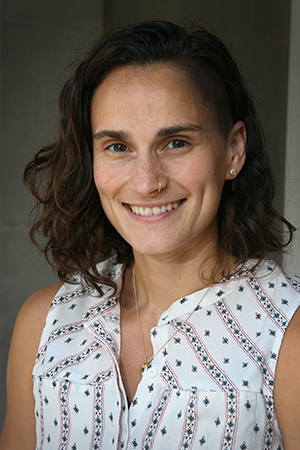
Faculty member Marisa Marraccini has been awarded two grants, including one from the National Institutes of Health, to support her research on the impacts of school environments on adolescents recovering from suicidal thoughts and behaviors.
Marraccini won an NIH Loan Repayment Program grant that awards to promising young researchers up to $70,000 over two years to reduce their educational debt. In exchange, awardees commit to a research project relevant to NIH goals in promoting health and wellbeing. Marraccini’s grant was from the National Institute of Mental Health.
She also has won a $100,000 grant from the American Foundation for Suicide Prevention to support her work.
Marraccini, an assistant professor of school psychology, joined the School of Education last year. She came to Carolina from Rhode Island, where she most recently served in a postdoctoral research fellowship focused at the Department of Psychiatry and Human Behavior in the Warren Alpert Medical School of Brown University.
Marraccini’s research aims to promote child and adolescent mental health in the context of their school settings. Her research is focused on supporting vulnerable populations, including adolescents struggling with suicidal thoughts and behaviors, youth at risk for bullying, students with ADHD, and students misusing prescription opioid and stimulant medication for recreational and academic purposes.
In the NIH-supported work, Marraccini is using data from a study conducted by a mentor, Nicole Nugent of the Warren Alpert Medical School of Brown University, to examine the re-entry of adolescents into schools after their release from mental health treatment, looking at how schools can better support these students.
The project aims to develop practical in-school supports and interventions to prevent suicide. Marraccini’s other mentor for the project is Jill Hamm of the School of Education.
The American Foundation for Suicide Prevention grant is supporting research by Marraccini aimed at describing school protocols and services provided for high school students discharged from psychiatric hospitals, and at identifying critical information that can be shared between hospitals and schools.
The study aims to become the first to identify best practice recommendations for how to facilitate re-entry of adolescents into schools after discharge from psychiatric hospitals.